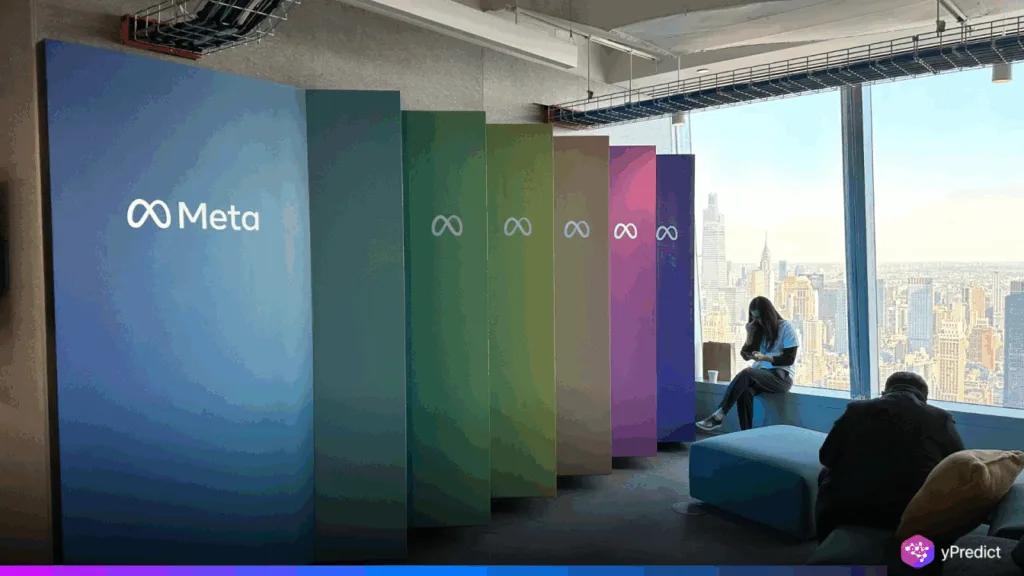
Meta is going all-in on artificial intelligence, offering massive compensation packages, up to $18 million, to attract elite AI talent from rivals like OpenAI and DeepMind. The push includes hiring full research teams, with CEO Mark Zuckerberg personally involved in recruitment. Meta recently secured prominent researchers Lucas Beyer, Alexander Kolesnikov, and Xiaohua Zhai, previously with OpenAI Zurich. While reports of $100 million signing bonuses have been denied by CTO Andrew Bosworth, the scale of Meta’s offers reflects the fierce competition to dominate AI, especially in areas like entertainment, VR, and wearables. For Meta, AI is no longer optional; it’s existential.
Zuckerberg’s Hands-On Strategy in AI Talent War
Mark Zuckerberg is not leaving the future of the AI empire of Meta to someone; he is in the front. The fact that the company CEO was specifically engaged in hiring the best AI researchers is an indication of the importance artificial intelligence has gained to Meta in terms of its long-term strategy. And the pompous roadmap of the company provides implementation of AI in such consumer devices as Quest VR headsets and Ray-Ban smart glasses, where immersive entertainment and generative AI overlap. This personal outreach also sidesteps traditional HR processes, fast-tracking negotiations and securing high-profile hires like Lucas Beyer and Alexander Kolesnikov.
These recruits are not just talented individuals; they come with cohesive research dynamics, accelerating Meta’s AI capabilities far faster than assembling teams from scratch. Internally, Meta’s compensation model hinges on performance-based stock units, not cash signing bonuses. Bosworth clarified that while the total value of some packages may reach $100 million over several years, it’s largely retention-focused. That strategy aligns with Meta’s aggressive, long-term vision to become a leader in artificial superintelligence. The recruitment spree isn’t just about products; it’s about mindshare. Meta wants to own the future of AI by becoming the platform where superintelligence breakthroughs happen first. To do that, it’s buying time and talent.
Meta vs OpenAI- Clash of AI Cultures
Meta’s all-out recruitment offensive has reignited cultural tensions in the AI world. While Meta prioritizes speed, scale, and compensation, OpenAI and DeepMind favor mission-driven environments grounded in research integrity and collaborative development. Sam Altman, CEO of OpenAI, has openly criticized Meta’s tactics as transactional and corrosive to the kind of culture needed for long-term AI breakthroughs. Yet even as OpenAI pushes its equity-based compensation and idealistic mission, it recently lost three key researchers to Meta. The defections suggest that ideology alone may no longer be enough to keep top talent when offers are reaching eight figures.
For Meta, this isn’t just a hiring spree; it’s a market correction. By absorbing existing teams, it imports institutional knowledge, research momentum, and internal synergy. Meta isn’t just poaching talent; it’s acquiring intellectual ecosystems. The stakes are clear. As Meta builds its AI teams, the company positions itself not merely as a social media giant but as a potential superintelligence leader. Zuckerberg’s vision aligns AI with everything from content creation to digital avatars, forming the backbone of Meta’s push into the post-smartphone world. In this war for talent, whoever controls the top minds controls the AI frontier. Meta is betting big that money talks louder than mission statements.
AI Talent Is the New Billion-Dollar Asset Class
With the global pool of AI researchers capable of driving superintelligence breakthroughs limited to a few dozen, Meta’s spending spree shows how rare and valuable this talent has become. These aren’t just hires; they’re high-leverage assets that could define the trajectory of AI for decades. While competitors focus on ideology or organic growth, Meta is buying time, brains, and an edge. As compensation packages soar and rivals scramble to retain talent, the AI arms race is turning into a battle of who pays, who builds, and who wins. In the world of AI, Meta isn’t just participating; it’s trying to own the game.





